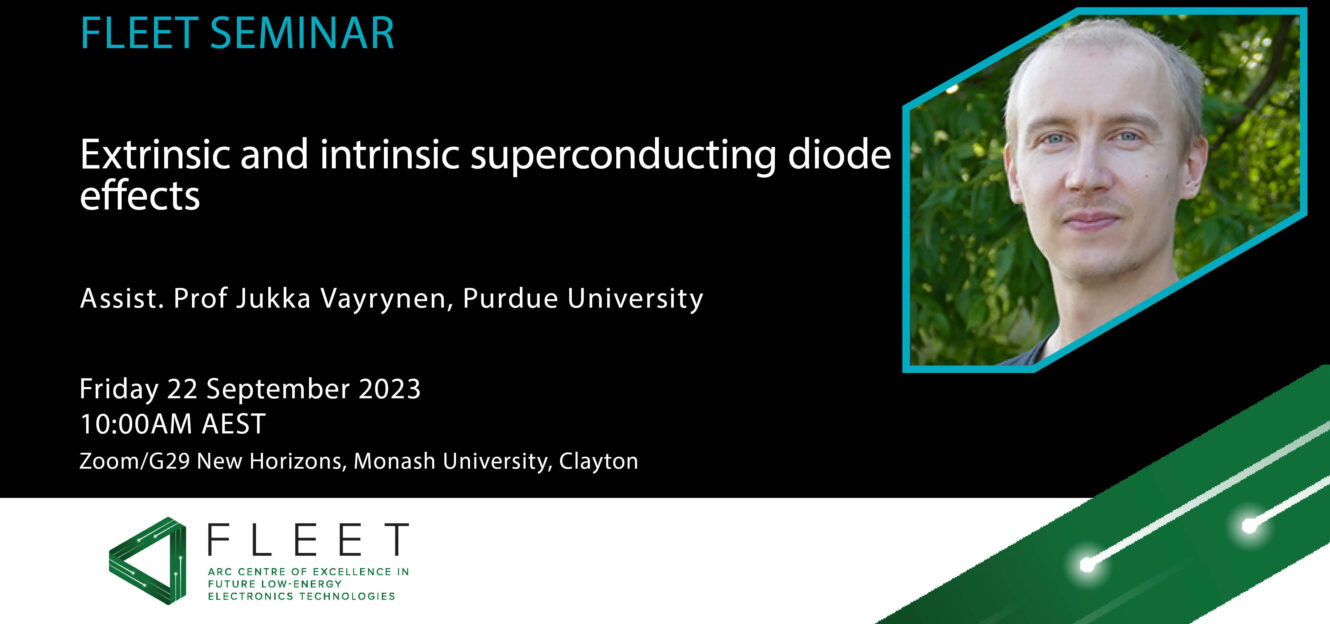-
22 Sep 2023
10:00 am - 11:00 am
Jukka Vayrynen, Assistant Professor of Physics and Astronomy, Purdue University
In-person and on zoom (recording available for FLEET members only)
The critical current of a superconducting wire can be non-reciprocal, that is, dependent on current direction, when inversion and time-reversal symmetry are broken. This so-called superconducting diode effect has gained renewed attention in recent years, due to the possibility that the effect may arise from the interplay of spin-orbit coupling and Zeeman effect in a uniform superconductor.
I will discuss the superconducting diode effect originating from two different mechanisms, studied in recent preprints [1-2]. The first one is an extrinsic one arising from the geometry of the setup rather than intrinsic properties. It is however relevant for uniform superconducting heterostructures due to the formation of interfacial diamagnetic currents and Josephson vortices [1].
In the second part of the talk, I will discuss an intrinsic mechanism that is relevant for generic quasi-one-dimensional superconducting systems where the critical current is determined by Cooper pair de-pairing. By introducing a minimal model, we find the key ingredients to obtain intrinsic superconducting diode effect. The model can be microscopically derived as a low-energy limit of a Rashba spin-orbit coupled superconductor in a Zeeman field.
The results quantify how system parameters such as spin-orbit coupling and quantum confinement affect the strength of the diode effect and provide a complementary description to previous Ginzburg-Landau theories of the effect.
Assist. Prof. Vayrynen’s group is interested in a wide variety of theoretical physics problems of low-temperature quantum systems. In particular, they specialize in condensed matter theory of topological quantum materials motivated by their use for topologically protected quantum computing. They are also especially interested in superconductor-semiconductor hybrids for “conventional” quantum computing.
[1] Diamagnetic mechanism of critical current non-reciprocity in multilayered superconductors, Sundaresh, Vayrynen, Lyanda-Geller, Rokhinson, arXiv:2207.03633. [2] Superconducting diode effect in quasi-one-dimensional systems, de Picoli, Blood, Lyanda-Geller, Vayrynen, arXiv:2302.04277
